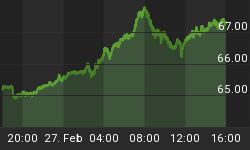As Treasury Secretary Henry Paulson continues to drum up interest in direct investment in the United States, he will rely on a set of skills that only a long-time Wall Street pro can truly master. It is part of the investment banker's playbook to perform financial makeovers on questionable companies that they are engaged to sell, a process commonly known as "putting lipstick on a pig."
As the U.S. economy continues to slow, and non-U.S. markets consistently produce much better returns on invested capital, Paulson will need to pull off an unprecedented act of porcine cosmetology to keep the foreign funds flowing. In addition, the persistent weakness in the U.S. dollar practically assures that any takers will likely find that they are the ones being led to the slaughterhouse.
The Treasury Secretary has consistently extolled the importance of foreign investment to our economy. Paulson recently underscored these sentiments with a visit to a UK-based company that employs 1,500 Americans at several manufacturing and distribution facilities in several states. However, while investment of this sort is badly needed, it represents just a small fraction of the money that Americans borrow. Because the vast majority of foreign "investments" come to us in the form of consumer loans, a more appropriate venue for Paulson's comments would have been a local Wal-Mart, Best Buy, or condo project. Whether in Treasury bills, mortgage-backed securities, or collateralized consumer debt, such loans do nothing to improve the long-term health of our economy. They merely serve to keep our necks above water until the financial tide eventually overwhelms us.
Legitimate foreign investment, in profitable businesses such as the one Paulson visited, are increasingly less attractive as other nations have superior infrastructures, better trained and educated workforces, lower taxes, and fewer regulations. If the Bush administration really wanted to attract more of this type of investment it would offer more than mere lip service. Serious reforms to both capital and labor regulation, and efforts to shore up the sagging greenback would be required for such an effort to bear fruit. Today's announcement from the Bank of China that they will allow greater flexibility in the Yuan will only make Paulson's job that much more difficult.
On Thursday, Ben Bernanke came to Paulson's aid with a can of hairspray and some mascara. Speaking in Chicago, the Fed chairman gave his assurances that the meltdown in the sub-prime mortgage market would not affect the broad U.S. economy. Bernanke's pronouncements come despite continued evidence of slowing retail sales, record high gasoline prices, escalating food prices, mounting inventories of unsold homes, and real estate auctions in which foreclosed homes sell for 30% -50% below their "appraised" values.
Perhaps the most important take from the current "Invest in the U.S." campaign is the fact that the U.S. needs to pass the hat in the first place. How can a nation that fancies itself the leader of the free world be so dependant on foreign capital? The fact that we do not generate sufficient domestic savings to satisfy these needs ourselves should be extremely troubling. The fact that so few on Wall Street even appreciate the significance of this fact is even more so.
For a more in depth analysis of the tenuous position of the Americana economy and U.S. dollar denominated investments, read my new book "Crash Proof: How to Profit from the Coming Economic Collapse." Click here to order a copy today.
More importantly make sure to protect your wealth and preserve your purchasing power before it's too late. Discover the best way to buy gold at www.goldyoucanfold.com, download my free research report on the powerful case for investing in foreign equities available at www.researchreportone.com, and subscribe to my free, on-line investment newsletter at http://www.europac.net/newsletter/newsletter.asp.















